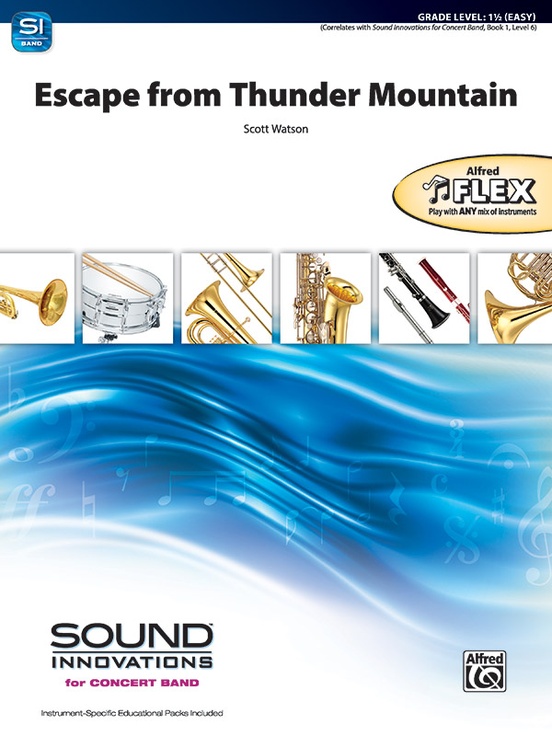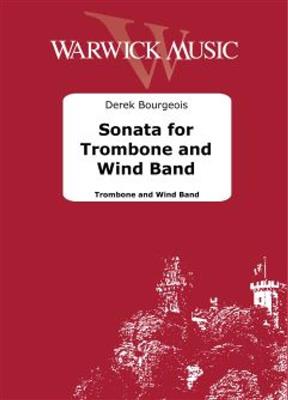Results
-
£154.99
Achnaton Wind Band Set (Score & Parts)
The Egyptian pharaoh Amenhotep IV, better known as Achnaton, was the second son and successor of Amenhotep III. He reigned the New Kingdom from 1353 until 1336 BC. Achnatons lack of interest in the economic well-being of Egypt ushered in a revolutionary period in Egyptian history. His harsh reign induced much suffering under the population. During this period when it was customary for a pharaoh to have many wives, he had taken his cousin Nefertete to reign as queen at his side. An elegant and very beautiful woman, she used her influence to ease the turmoil caused by Achnaton. Combined with her grace, her presence at public functions led to a greater popularity among her subjects than the pharaoh enjoyed himself. Being mostly preoccupied with religious questions, he declared that all the other gods did not exist. There was only one god, the Aten, and it was the sun itself. It was now necessary to change his name: 'Amenhotep' meaning 'the god Amun is satisfied', because he didnt want to be associated with Amun or any of the other deities. He renamed himself 'Achnaton' which means 'servant of the Aten' -- a much more appropriate title! In the sixth year of his reign Achnaton also moved the capital to a brand new city called Achet-Aton ('the Horizon of the Aten') which was where Tel el-Amarna stands today. He did this to further isolate himself from the 'old' religion, since the previous capital Thebes was the centre of worship of Amun. This new religion created an up rise among the population and high priests. In spite of Nefertetes influence, the falling economy and religious conflict resulted in the decline of the Egyptian empire. Hoping to forget it ever happened, people later tried to eradicate all traces of Achnaton and his successors rule by smashing their statues, mutilating their mummies, and ruining their relief carvings. From that moment on he was remembered as the 'heretic king'. This composition was partially funded by the 'Prins Bernhard Cultuurfonds'. 09:00
Estimated dispatch 7-14 working days
-
 £69.30
£69.30From Heartland to Heaven
Commissioned to honor a beloved teacher who had passed away, this eloquent piece both begins and ends with warm and moving chorale sections. The contrasting allegro con brio theme is full of energy and vitality. While this piece is not very difficult, it features close contemporary harmonies and it provides ample opportunities for expressive playing especially in the woodwinds. Includes lots of tasteful percussion parts to keep your drummers involved. A wonderful composition that will pay big musical dividends and it is a wonderful choice for contest or concert performances. VERY VERY NICE!
Estimated dispatch 7-14 working days
-
 £67.61
£67.61Caprice (Euphonium Solo with Concert Band) Andrew Batterham
VIEW SCORE PDF Caprice was written for Matthew van Emmerik, to showcase his virtuosity in an engaging piece of concert music. The work is in theme and variation form, with the primary material being the theme from the last of Paganini's Ventiquattro Capricci per violino solo, a collection of 24 caprices for solo violin. This theme has been the inspiration for similar works by many composers since it was first published, including Liszt, Brahms, Rachmaninov, Benny Goodman and Andrew Lloyd Webber. In this work, the famous theme is treated to a more contemporary approach. The first variation, Capricious, relies on motor rhythms and jagged dialogues between the soloist and the band. It is couched in an organic scale reminiscent of the Phrygian mode. The second variation, Sad, is in direct contrast, acting as a traditional ballad and allowing the soloist to explore the expressive side of the instrument. The third variation, Energetic, is a micro set of variations in itself, designed to display the soloist's innovative technique and stamina. Each section is more challenging than the last, until the work concludes with a whirlwind dance at breakneck speed. Like all of Batterham's recent work, the musical language of Caprice draws upon classical, jazz, funk and ska elements to create a unique sound where anything can happen, and probably will. This arrangement was made possible through Matt's instigation and generosity. To view a video of Matthew van Emmerik performing the version with brass band please visit www.youtube.com/watch?v=D0hsvux_a5o To view a video of Fletcher Mitchell performing the version with piano please visit www.youtube.com/watch?v=NOZ6KRldDVo Sheet music available from : UK: www.wind-band-music.co.uk USA: www.solidbrassmusic.com Instrumentation: Euphonium Soloist Piccolo Flute 1-2 Oboe Bassoon Clarinet in Eb Clarinet in Bb 1-3 Bass Clarinet in Bb Alto Saxophone 1-2 Tenor Saxophone Baritone Saxophone Trumpet in Bb 1-3 Horn in F 1-4 Trombone 1-2 Bass Trombone Euphonium Tuba String Bass Percussion 1-3
In stock: Estimated dispatch 1-3 days
-
 £53.95
£53.95Escape from Thunder Mountain - Scott Watson
This version of by Scott Watson is part of our Alfred FLEX offerings and is designed with maximum flexibility for use by any mix of instruments---wind, strings, and percussion, including like- or mixed-ensembles with as few as 4 players. The suggested instrumentation and a customizable Teacher Map will help you plan out how to best assign parts to suit your ensemble's needs. The 4-part instrumentation will support balanced instrumentation of the lower voices. It also comes with supplemental parts for maximum flexibility. With the purchase of this piece, permission is granted to photocopy the parts as needed for your ensemble. A percussion accompaniment track is also available as a free download. String parts have been carefully edited with extra fingerings and appropriate bowings to support students in mixed ensembles playing in less familiar keys. The tropical island volcano, Thunder Mountain, has lain dormant for years. As a party of adventurous researchers work atop the legendary mountain, it begins to shake with pre-eruption tremors! Check out this original composition by Scott Watson! (4:40) Percussion Accompaniment Track Downloads: .This title is available in MakeMusic Cloud.
Estimated dispatch 3-5 working days
-
 £139.00
£139.00Me and Mrs. Jones - Kenneth Gamble
Me and Mrs. Jones was written by Kenny Gamble, Leon Huff and Cary Gilbert in 1972, and was first recorded by Billy Paul on the album 360 Degrees of Billy Paul. The song is about a man who has an affair with Mrs. Jones, and how the two secretly meet every day in the same cafe, even though they may know it's not quite right: "We got a thing going on/we both know that it's wrong/but it's much too strong/to let it go now." Paul has stated that he was sure the song was going to be a hit even before it was released, as "it's a song everyone can relate to", but already from the start the lyrics were considered somewhat controversial and the song were banned from several radio stations. Nevertheless, it became one of the best-selling singles of 1972 and Paul received a Grammy for Best Male R&B Vocal Performance.Well known is also Michael Bubl's version of the song, released on the album Call Me Irresponsible in 2007. It is his version that has been the inspiration for this arrangement, which brings out even more of the jazz elements Bubl has found in the song. The arrangement is quite demanding for the ensemble, and requires great rhythmic precision in particular.
Estimated dispatch 7-14 working days
-
 £115.60
£115.60Optimist - John Teigen
"Optimist" is one of the most well-known songs by Norwegian singer and composer Jahn Teigen. It was written for the Norwegian Eurovision in 1989. It did not win this competition, but is still one of the greatest Norwegian songs from the late 1980's. This arrangement is very close to the original in form, rhythmic- and melodic lines. The repeat at bar 65 may be played as many times as one wish, or it can be omitted.
Estimated dispatch 7-14 working days
-
 £149.40
£149.40The Battle of the Hats - Øystein Sjøvaag Heimdal
The word svimesltt, which is the title of this piece in Norwegian, has two meanings. One meaning is "knocked out", whilst the other, "sltt", means a folk melody/dance.Svimesltt is one of several folk dances, all of them with humorous titles, originally written by ystein Olsen Vadsten. Norwegian culture is the basis for these dances, both rhythmically and melodically. The accompaniment has brought this funpiece into the 21st Century.When it comes to Svimesltt, it is the traditional dance "halling" that is the inspiration. Halling is a rather wild dance, where the man tries to win the heart of a lady by attempting to kick a hat off a stick,held up in the air. This iswhere "The Battle of the Hats" gets its distinctive name A truly Norwegian tradition.The composer wanted to write a "crazy" melody, which highlights how "knocked out" a man can be by love, as he tries to win the chosen ones heart.
Estimated dispatch 7-14 working days
-
 £76.99
£76.99From Heartland to Heaven - Chisham
Commissioned to honor a beloved teacher who had passed away, this eloquent piece both begins and ends with warm and moving chorale sections. The contrasting allegro con brio theme is full of energy and vitality. While this piece is not very difficult, it features close contemporary harmonies and it provides ample opportunities for expressive playing especially in the woodwinds. Includes lots of tasteful percussion parts to keep your drummers involved. A wonderful composition that will pay big musical dividends and it is a wonderful choice for contest or concert performances. VERY VERY NICE!
Estimated dispatch 7-14 working days
-
£72.95
Jingle Bell Rag - James Pierpont
This piece has a very high cute factor with the infusion of Ragtime music into the ever-popular Christmas carol Jingle Bells. It is a clever combination that works as if it was always meant to be this way. A perfect change of pace piece for your next holiday concert in a solid arrangement that is effective and educational. Use it to teach the history of this important American style of music.
Estimated dispatch 7-14 working days
-
 £75.00
£75.00Sonata - Derek Bourgeois
This work, composed in 1998, was commissioned by the American trombonist Don Lucas as a work for trombone and piano and first performed by him in Birmingham on 19th May 2000. Subsequently, I arranged the music for both solo trombone and brass band and solo trombone and wind band so that it now exists in three formats. The first movement, in B flat major, is brisk and energetic, and is cast in sonata form. The second subject is gentler and more lyrical. The second movement, a scherzo in C major, is the most complex of the four. Basically the structure is a rond. For a long time the music remains in the opening 5/8 time until a new theme introduces more broken rhythms in a more jazzy idiom. After a return of the opening theme the following episode is more tonally ambiguous. Finally, the main theme returns to round off the movement. The third movement, a lyrical adagio, is really one long extended melodic flow. The harmonies are lush and the textures simple and direct. The tonal center is A minor, but the music meanders through so many keys, that this key centre is heavily disguised. The finale is a fiery affair. G minor is really its home key, but throughout the movement the music moves about a lot and the second subject is first heard in A flat minor. The movement's underlying sonata structure is masked not only by its loose tonality but also by its frequently changing time signatures. Like the first movement the second subject is more lyrical in nature and for a while it seems that the music will end peacefully, but a final flurry heralds a triple forte unison on the home note of the first movement - B flat. Derek Bourgeois
Estimated dispatch 7-14 working days
